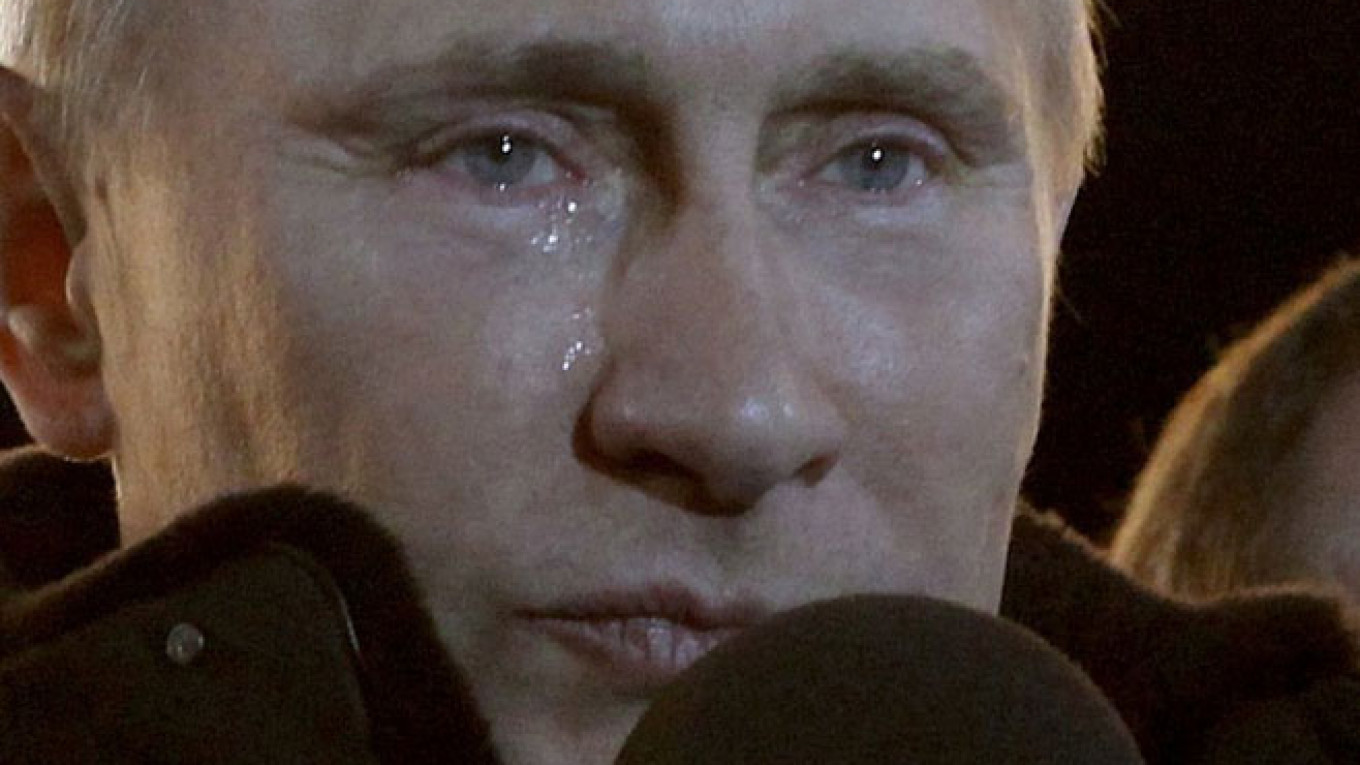There's no question that the Kremlin's policy toward Ukraine is paying concrete dividends, at least in Russia.
On March 7, tens of thousands of people rallied in Moscow's Red Square to support the Kremlin's expanding control over Crimea and formally incorporating the peninsula into the Russian Federation. Russian officials have taken up the call. In her recent meeting with the chairman of Crimea's parliament, Federation Council Speaker Valentina Matviyenko pledged that "if the decision is made, then Crimea will become an absolutely equal subject of the Russian Federation."
But what is less well understood is how much Russia's policy on Ukraine will end up costing the country and its people.
Already, Russia's struggling economy has been hit with major turbulence as a result of the Kremlin's military moves. The fallout has included a plunge in the value of the ruble and a significant decline in the country's MICEX stock index. Meanwhile, market analysts have predicted that capital flight from Russia — already high — will accelerate further, along with a drop in foreign direct investment.
Then there are the sanctions. On March 6, U.S. President Barack Obama signed a preliminary executive order authorizing sanctions against "individuals and entities responsible for activities undermining democratic processes or institutions in Ukraine." In the aftermath of Sunday's referendum in Crimea, his administration issued another, containing preliminary sanctions on select Ukrainian and Russian officials. Meanwhile, a new bill now under consideration by the Senate would widen the number of individuals and firms in Russia that can be targeted for their role in the Ukraine conflict.
Europe is inching in this direction as well. In recent days, the European Union has agreed to a framework for similar economic sanctions against the Kremlin for its military incursion into Crimea. In the wake of Sunday's referendum, these curbs are being enforced, marking the first European sanctions against Russia since the end of the Cold War.
These are restrictions and penalties that Russia's already-sluggish economy can ill afford. And still more economic pain is in the offing.
Relations between Russia and the West are arguably at their lowest ebb since the Cold War, calling into question Moscow's long-coveted place in a number of international institutions. For example, the U.S., Britain, Canada, France, Germany, Italy and Japan have announced that they are halting preparations for the upcoming Group of Eight summit in Sochi, unless Moscow reverses course in Crimea. Meanwhile, talks over potential accession to the Organization for Economic Cooperation and Development have been temporarily suspended over Russia's foray into Ukraine. A prolonged conflict will sink the G8 summit in Sochi for certain and is guaranteed to lead to greater economic isolation.
Thus, Russia has already begun to pay a high price for its intervention in Ukraine. It stands to lose a great deal more the longer it persists in its foreign adventurism. The real question, then, is whether such practical considerations will ultimately trump ideological and nationalistic ones.
Thirty-five years ago, the newly created Islamic Republic of Iran faced rising inflation and economic malaise as a result of international jitters over its uncompromising, expansionist worldview. But its supreme leader, Ayatollah Ruhollah Khomeini, refused to moderate his policies, famously stating that he had not staged a revolution to quibble over the price of melons. What followed were years of economic stagnation and domestic misery, as Khomeini's Iran became an international pariah.
It remains to be seen whether President Vladimir Putin is similarly single-minded in his ambitions and dismissive of their impact on ordinary Russians.
Ilan Berman is vice president of the American Foreign Policy Council in Washington.
A Message from The Moscow Times:
Dear readers,
We are facing unprecedented challenges. Russia's Prosecutor General's Office has designated The Moscow Times as an "undesirable" organization, criminalizing our work and putting our staff at risk of prosecution. This follows our earlier unjust labeling as a "foreign agent."
These actions are direct attempts to silence independent journalism in Russia. The authorities claim our work "discredits the decisions of the Russian leadership." We see things differently: we strive to provide accurate, unbiased reporting on Russia.
We, the journalists of The Moscow Times, refuse to be silenced. But to continue our work, we need your help.
Your support, no matter how small, makes a world of difference. If you can, please support us monthly starting from just $2. It's quick to set up, and every contribution makes a significant impact.
By supporting The Moscow Times, you're defending open, independent journalism in the face of repression. Thank you for standing with us.
Remind me later.


